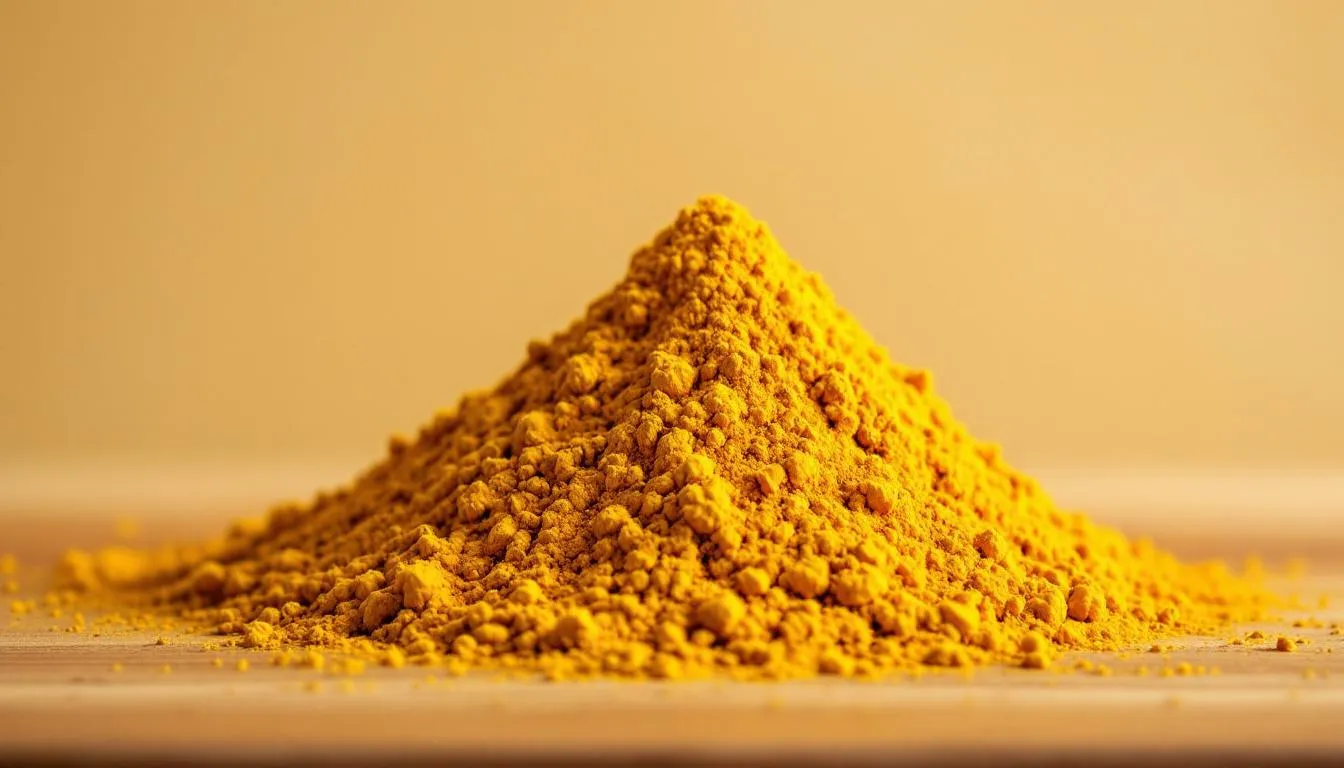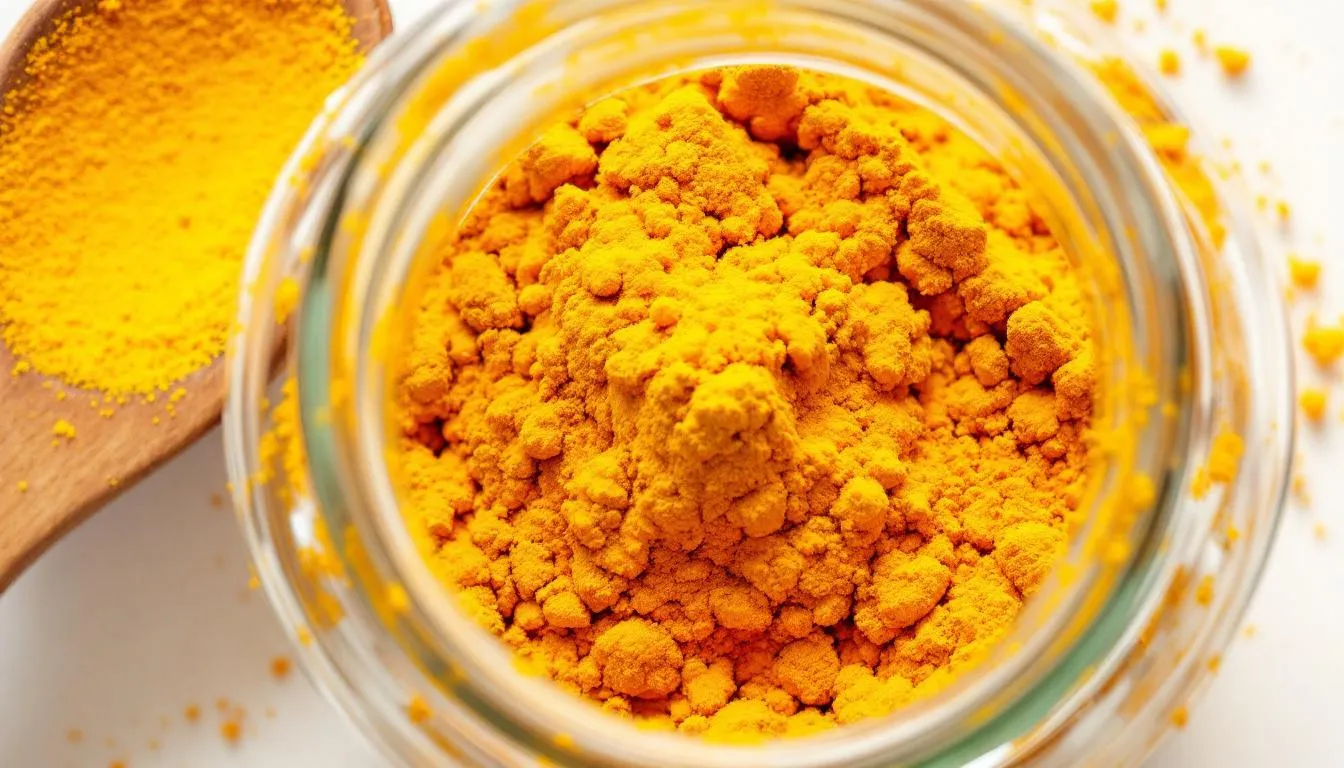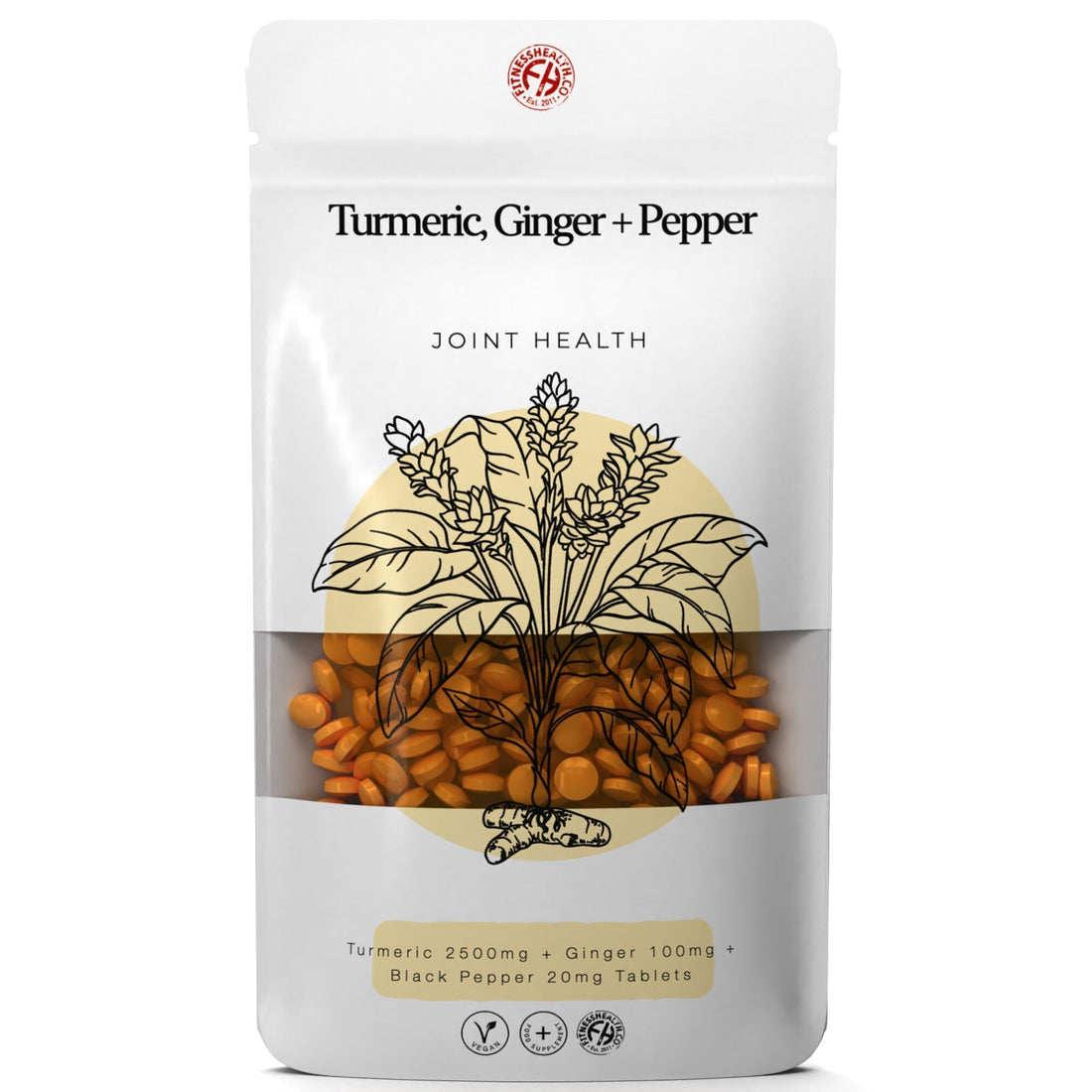Turmeric Pills: Benefits, Dosage, and Potential Side Effects Explained
Introduction to Turmeric
Turmeric is a bright yellow spice from the Curcuma longa plant, commonly used in ayurvedic medicine and cooking. Turmeric belongs to the ginger family.
Turmeric is a ground spice derived from the rhizomes of Curcuma longa. The active ingredient curcumin is responsible for most of turmeric's health benefits, including anti-inflammatory and antioxidant properties. Dietary curcumin is a naturally occurring compound in turmeric that has been studied for its potential therapeutic effects.
Turmeric supplements, including curcumin supplements, are popular for their potential health benefits, but more research is needed to confirm their effectiveness. Turmeric extract is a concentrated form used in some supplements.
Curcumin absorption is a key factor in turmeric's effectiveness, and certain methods, such as combining with black pepper or fats, can increase absorption.

Health Benefits of Turmeric
Turmeric has been shown to benefit people with inflammation and arthritis, including osteoarthritis and rheumatoid arthritis.
The health benefits of turmeric also include reducing the risk of cardiovascular disease, improving digestive health, and supporting immune system function. Animal studies have provided preliminary evidence for turmeric's effects on memory, immune support, and cancer prevention.
Turmeric’s anti-inflammatory properties may also help reduce the risk of chronic conditions, such as heart disease and cancer. Turmeric may help treat conditions such as Alzheimer's disease, and research is ongoing. Turmeric may also help inhibit the growth of cancerous cells and may provide support for cancer patients, though more research is needed. In addition, turmeric may influence immune cells such as B cells and T cells, supporting the body's defense mechanisms.
Other potential benefits of turmeric are still being investigated.
Reducing the Risk of Cardiovascular Disease
Turmeric’s antioxidant properties may help lower cholesterol levels and reduce blood pressure, both of which can contribute to cardiovascular disease.
To incorporate turmeric into your diet, you can use ground turmeric powder or turmeric supplements. Adding black pepper to turmeric can significantly increase the absorption of curcumin, the active compound in turmeric. This combination helps increase absorption and maximize the health benefits of turmeric.
More research is needed to confirm the potential benefits of turmeric for cardiovascular health, but the existing evidence is promising.
Anti-Inflammatory Properties
Turmeric’s anti-inflammatory effect is due to its active ingredient curcumin, which has been shown to reduce inflammation and alleviate symptoms of conditions like arthritis.
The anti-inflammatory properties of turmeric may also help reduce the risk of chronic conditions, such as heart disease and cancer.
Turmeric supplements, including curcumin extract, may be beneficial for reducing inflammation and improving overall health.
Antioxidant Properties and Immune System Support
Turmeric contains antioxidants that help protect the body against free radicals and oxidative stress, which can contribute to chronic conditions.
The immune system benefits from turmeric’s antioxidants, which may help reduce the risk of infections and diseases.
Turmeric supplements, including curcumin supplements, may be beneficial for supporting immune system function and overall health.

Digestive Health and Benefits
Turmeric has been shown to improve digestive health and reduce symptoms of conditions like irritable bowel syndrome (IBS) and inflammatory bowel disease.
The anti-inflammatory properties of turmeric may also help reduce the risk of digestive disorders, such as ulcerative colitis.
Incorporating turmeric into your diet, either through ground turmeric powder or turmeric supplements, may help improve digestive health.
Clinical Evidence and Studies
A growing body of clinical research supports the potential health benefits of turmeric and its active ingredient, curcumin. For example, a systematic review of 17 clinical trials found that curcumin supplements produced a significant anti-inflammatory effect, particularly in people with osteoarthritis, helping to reduce inflammation and improve joint function. Other studies have highlighted the antioxidant and anti-inflammatory properties of curcumin extract, suggesting it may help lower the risk of chronic diseases such as heart disease and certain cancers. In addition, a pilot study focusing on inflammatory bowel disease found that turmeric supplementation improved symptoms and enhanced quality of life for patients with ulcerative colitis. While these findings are promising and demonstrate the potential benefits of turmeric for reducing inflammation and supporting overall health, more research is needed to fully understand the long-term effects and optimal use of curcumin supplements.

Potential Side Effects and Liver Injury
- Higher doses of turmeric supplements may cause digestive symptoms, such as abdominal pain and diarrhea.
- Low doses are generally well tolerated and may support immune function.
- Lead exposure is a potential risk with some turmeric supplements, so it's important to choose reputable brands.
- Liver injury is a potential risk of taking turmeric supplements, especially at high doses.
- More research is needed to confirm the potential risks and benefits of turmeric supplements, but the existing evidence suggests that they are generally safe when taken in moderation.
- Always consult a healthcare provider before taking supplements, especially at higher doses.
Interactions with Medications
- Turmeric supplements may interact with certain medications, such as blood thinners and diabetes medications.
- The anti-inflammatory properties of turmeric may also interact with certain medications, such as NSAIDs.
- It is essential to consult with a healthcare provider before taking turmeric supplements, especially if you are taking medications or have a medical condition.
Safety Precautions and Contraindications
Although turmeric supplements are generally safe for most people when taken as directed, there are important safety precautions to consider. High doses of turmeric or curcumin supplements can lead to digestive symptoms, including abdominal pain, nausea, and diarrhea. Individuals with bile duct obstruction, liver disease, or gallstones should avoid taking turmeric supplements, as they may exacerbate these conditions. Turmeric may also lower blood sugar levels, so people with diabetes or those taking blood thinners should use caution and monitor their health closely. Pregnant or breastfeeding women should consult a healthcare provider before taking turmeric supplements, as there is limited research on their safety in these groups. As with any supplement, it is essential to speak with a healthcare provider to assess your individual risk and ensure turmeric is safe for your specific health needs.
Dosage and Administration Guidelines
- The recommended dosage of turmeric supplements varies depending on the individual and the condition being treated.
- Curcumin extract is often recommended at a dosage of 500-2000 mg per day.
- It is essential to consult with a healthcare provider before taking turmeric supplements to determine the best dosage and administration guidelines.
Benefits of Curcumin Supplements
- Curcumin supplements have been shown to reduce inflammation and alleviate symptoms of conditions like arthritis.
- The antioxidant properties of curcumin may also help reduce the risk of chronic conditions, such as heart disease and cancer.
- Curcumin supplements may be beneficial for supporting immune system function and overall health.

Mechanism of Action
The mechanism of action of turmeric supplements is due to the anti-inflammatory and antioxidant properties of curcumin.
Curcumin has been shown to reduce inflammation and oxidative stress, which can contribute to chronic conditions.
More research is needed to confirm the mechanism of action of turmeric supplements, but the existing evidence is promising.
Comparison to Other Supplements
Turmeric supplements have been compared to other supplements, such as ginger and boswellia, for their anti-inflammatory and antioxidant properties.
The evidence suggests that turmeric supplements may be more effective than other supplements for reducing inflammation and alleviating symptoms of conditions like arthritis.
More research is needed to confirm the comparison of turmeric supplements to other supplements, but the existing evidence is promising.
Potential Interactions with Other Supplements
When taking turmeric supplements or curcumin supplements, it’s important to be aware of potential interactions with other supplements and medications. For instance, combining turmeric with blood thinners can increase the risk of bleeding, while using it alongside diabetes medications may cause blood sugar levels to drop too low. Curcumin may also interact with certain antidepressants, such as SSRIs, potentially increasing the risk of serotonin syndrome. Because of these possible interactions, it is crucial to consult with a healthcare provider or registered dietitian before adding turmeric supplements to your routine, especially if you are already taking other medications or supplements. Professional guidance can help you avoid unwanted side effects and ensure you are using turmeric safely and effectively.
Long-Term Effects and Sustainability
The long-term effects of taking turmeric supplements are still being studied, and more research is needed to determine their safety and sustainability over time. Some evidence suggests that prolonged use of curcumin supplements at high doses may increase the risk of liver injury or contribute to kidney stone formation. However, other studies have found that turmeric and curcumin supplements are generally safe and well-tolerated for short-term use, up to about eight weeks. To minimize potential risks, it is best to follow recommended dosages and consult with a healthcare provider regularly. For those seeking a more sustainable approach, incorporating turmeric into your diet through foods like curry powder or fresh root may offer health benefits with a lower risk of side effects. As always, moderation and professional advice are key to safely enjoying the potential health benefits of turmeric.
Additional Resources and References
- National Institutes of Health (NIH) - Turmeric and Curcumin
- Mayo Clinic - Turmeric
- Healthline - Turmeric and Curcumin
- PubMed - Turmeric and Curcumin Studies
- Registered dietitian or healthcare provider for personalized advice on taking turmeric supplements.
- Professionals with public health credentials for credible information on turmeric supplements.









